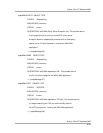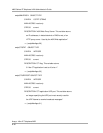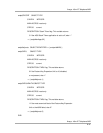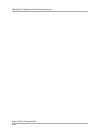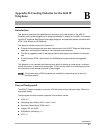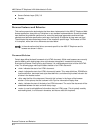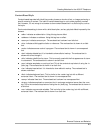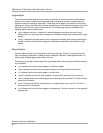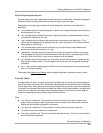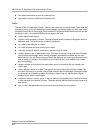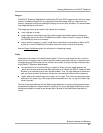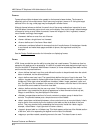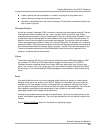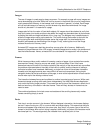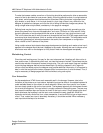
Creating Websites for the 4630 IP Telephone
Browser Features and Behavior
B-5
Physical Spacing and Layout 5
Physical spacing and layout tags define the basic structure of a document. Headings, paragraphs,
tables and lists all provide some basic physical and logical layout to a page.
Each spacing and layout tag is shown with a brief description, and any unusual behavior is
described.
■ <p> indicates the start of a new paragraph. A blank line is inserted between previous text and
text following the <p> tag.
■ <br> indicates that a breakpoint should be inserted. A newline is inserted between previous
text and text following the <br> tag.
■ <pre> indicates that the following text should have no formatting rules applied to it. This
implies that no wrapping will be applied to this text, which may result in a horizontal scrollbar
being added to view the text.
■ <hr> indicates that a newline and a horizontal rule (line) should be inserted between the
previous text and text following the <hr> tag.
■ <blockquote> indicates that the following text is a quote, and should be offset in some way.
The embedded text is shown with newlines before and after the text, and spacing to the left
and right. Within that "block" of text, normal wrapping rules are applied.
■ <q> indicates that the following text is a short quote, and should be shown in double-quotes
(according to documentation). This text appears as normal text, with no physical identifying
indications.
■ <h1> - <h6> indicate heading sections. Each level is one point smaller than the previous level,
with <h1> being the largest.
The section titled Maintaining Context
contains design guidelines for maintaining user context.
Lists and Tables 5
For presentation of data in a logical format, lists and tables are two of the more important sets of
tags. Since space is at a premium in the browser, tables should be used with discretion. While they
provide sets of text, which are easy for the eye to process, they can quickly become cumbersome
if misused in this browser. Both width and height are limited, so the data provided in the table cells
should be short pieces of text. Beyond that, the page designer should come up with a different
model for presenting the data, possibly using lists and divisions.
Lists 5
■ <ol> starts an ordered list. This provides a list with some type of numbering: upper-case
letters, lower-case letters, digits, upper-case roman numerals, lower-case roman numerals.
Setting the type attribute is ignored in the browser.
■ <ul> starts an unordered list. This provides a list with bullets to the left of each item.
■ <li> adds an item to an ordered or unordered list.
■ <dl> starts a definition list. This is a list with two fields per list item. The first is a term and the
second is the term's definition.



